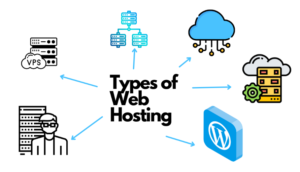
Medical practices today face a myriad of challenges, with financial sustainability being a paramount concern. In the intricate web of healthcare administration, the role of medical billing services cannot be overstated. These services help ensure timely payments, reduce errors and rejections, and ultimately improve revenue cycles for healthcare providers.
Table of Contents
In addition, medical billing companies often offer expertise in revenue cycle management, i.e., navigating complex insurance and governmental regulations, helping practices stay compliant, and avoiding costly penalties. By outsourcing their billing needs to reputable service providers, medical practices can streamline operations, reduce administrative burdens, and focus on providing quality care to their patients.
This comprehensive guide navigates the landscape of medical billing services, exploring their pivotal significance in revenue cycle management. Focusing keenly on Practice EHR, we will explore the seamless integration of electronic health records and billing processes. Through this guide, we will also decipher how this synergy can substantially boost the revenue streams for medical practices.
Understanding Medical Billing Services
At its core, medical billing services are the backbone of any practice. Medical billing is the process by which healthcare providers generate invoices and collect payments from patients and insurance companies.
In an era where healthcare complexities abound, outsourcing this vital function to specialized medical billing services has become common among healthcare bodies across first-world countries. According to Markets and Markets research report, medical billing outsourcing services touched almost US $312 billion value by 2022. This trend is expected to continue as healthcare organizations seek to streamline their operations and focus on providing quality care to their patients.
These services help ensure timely payments, reduce errors and rejections, and ultimately improve revenue cycles for healthcare providers. Moreover, they often offer expertise in revenue cycle management and navigating complex insurance and governmental regulations, helping practices stay compliant and avoid costly penalties. Credentialing is another critical process that medical billing services undertake, which involves verifying and validating the qualifications claimed by healthcare practitioners, including their education, training, certifications, malpractice coverage, and performance records.
How Medical Billing Services Increase Revenue
First and foremost, the medical billing companies ensure the prompt and correct submission of insurance claims. These companies work with certified medical coders, so the chances of administrative errors are meager, providing insurance providers accept claims. Prompt and accurate submission of claims is directly proportional to the swift release of funds from the medical insurance providers.
Several researchers state that outsourcing the service of a medical billing company can accelerate the revenue potential by 30%. Besides boosting the revenue stream, these services also cut many costs, i.e., manual submission costs, salaries paid to staff who manually submit insurance claims, etc. All these saved costs are ultimately profit for the practice.
These companies also follow up regularly on the status of each claim, from submission to payment. This allows doctors and health care providers to focus on providing high-end services to their patients without worrying about the monetary aspect of their practice. The expertise of these billing companies helps healthcare providers maximize their reimbursement by identifying and resolving errors and ensuring that claims are processed efficiently.
Any healthcare facility can improve its revenue cycle management and provide better patient care by taking services from a reliable and reputed medical billing company.
The Practice EHR Advantage
Practice EHR (PEHR), an industry leader in healthcare technology, has redefined medical billing services through innovative solutions. By harmonizing electronic health records with billing procedures, PEHR optimizes administrative workflows and minimizes errors.
Let’s delve into the key ways Practice EHR elevates medical billing to a new standard of excellence.
1. Streamlining Administrative Workflows
One of the primary challenges in medical billing is the complexity of administrative tasks. Practice EHR simplifies these processes by automating data entry, validation, and claims submission. This automation drastically reduces the margin for error, ensuring that claims are accurate and promptly processed.
2. Enhancing Accuracy and Compliance
Practice EHR employs advanced algorithms to validate claims before submission. This meticulous scrutiny minimizes errors and ensures compliance with healthcare regulations. Medical practices using Practice EHR can navigate the labyrinth of legal standards confidently, mitigating the risk of fines and penalties.
3. Accelerating Reimbursement Cycles
Prompt reimbursements are the lifeblood of any medical practice. Practice EHR expedites the claims submission process, significantly reducing the payment cycle. Quicker reimbursements translate to a healthier cash flow, empowering medical procedures to focus on delivering superior patient care.
Realizing the Benefits: Case Studies and Statistics
Let’s explore real-world examples that underscore the transformative impact of Practice EHR on medical practices’ revenue streams.
Case Study: Green Valley Medical Center
Green Valley Medical Center, a multi-specialty clinic, implemented Practice EHR’s integrated billing solution. Within six months, they witnessed a remarkable 27% increase in revenue. The implementation streamlined their billing processes, leading to a substantial reduction in claim denials and rejections.
Statistics: National Survey of Medical Practices
According to a national survey conducted among medical practices, those utilizing Practice EHR reported a 32% reduction in billing errors. This translated to a 19% increase in overall revenue within the first year of adoption. Furthermore, these practices experienced a 21% decrease in administrative overhead costs, allowing them to allocate resources to vital patient care initiatives.
Conclusion
In the intricate tapestry of modern healthcare, the synergy between medical billing services and innovative solutions like Practice EHR is indispensable. By embracing Practice EHR, medical practices not only optimize their revenue streams but also elevate the quality of patient care.
As the healthcare industry continues to broaden and evolve, staying ahead with streamlined, efficient billing processes is no longer a choice but a necessity. Practice EHR stands as a testament to the power of technology in transforming healthcare administration, paving the way for a future where medical practices thrive financially while delivering exceptional patient experiences.
If you want to explore the services today, contact us for a FREE DEMO.






